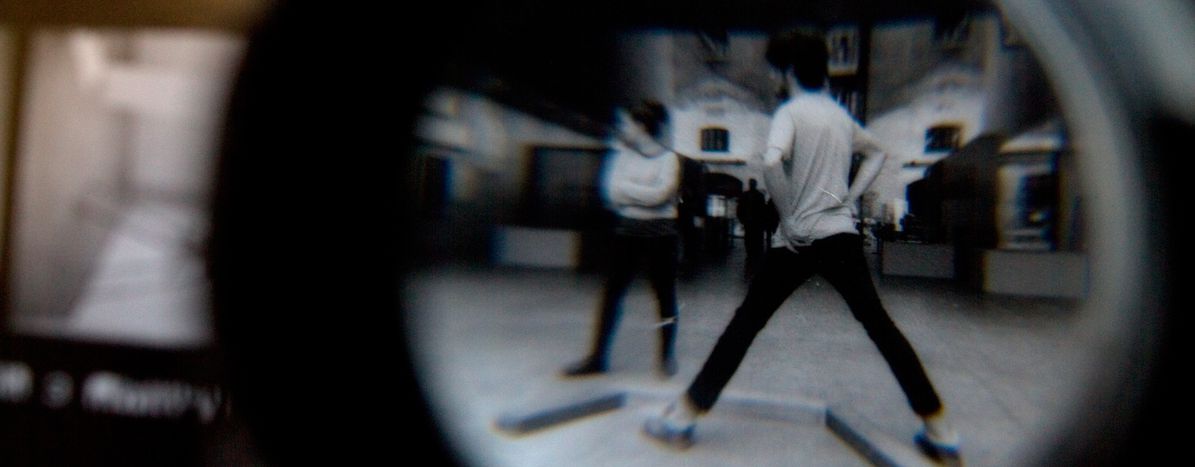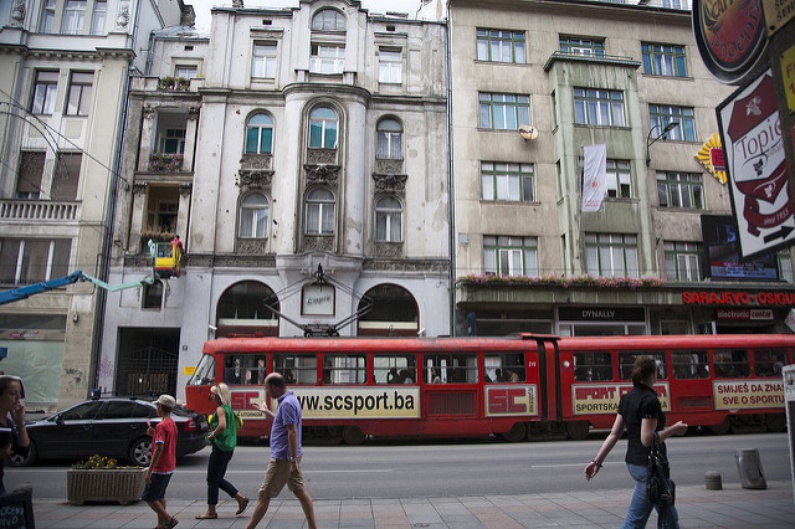
The EU and the Balkans: "If the EU falls, it falls on us."
Published on
Translation by:
M ShamsThe EU is in a strange state of affairs. As the UK bids farewell to the European Union, and the future of the European project is filled with uncertainty, the Western Balkan states who are waiting to become members have started asking questions. Has Brexit unleashed a storm? We interviewed several people from the region to discover what they had to say about the EU.
When 51.9% of British people decided to leave the EU, the rest of the member states were left with their heads in their hands. The other 27 countries questioned whether it was still plausible to continue expansing the Union. Although it may seem paradoxical, and despite the chaos that may arise, six western Balkan states - Bosnia and Herzegovina, Serbia, Montenegro, Kosovo, Albania and Macedonia - hope to become member states. Some of these states, such as Macedonia, have been waiting since 2005 to join. Britain’s exit is a major disappointment for these states who placed their hopes in Brussels. But can Brexit really halt their aspirations and democratic development or will it do the opposite?
 At the beginning of July, the organisation European Alternatives held its annual conference at the Civil Society Forum in Paris. Every year, hundreds of people, mainly from the Balkans but also from the rest of Europe, gather to debate the future of the region and offer advice to politicians. The European dream is not dead, but doubts are beginning to emerge. "We are victims of history," explains Ani Ruci, an Albanian activist and journalist and founder of Refleksione, an organisation which works for women's rights in her country. "We have always lived under a sort of occupation. Albania is a small country which has never been able to find its way. Membership is a right that we are going to be granted very late."
At the beginning of July, the organisation European Alternatives held its annual conference at the Civil Society Forum in Paris. Every year, hundreds of people, mainly from the Balkans but also from the rest of Europe, gather to debate the future of the region and offer advice to politicians. The European dream is not dead, but doubts are beginning to emerge. "We are victims of history," explains Ani Ruci, an Albanian activist and journalist and founder of Refleksione, an organisation which works for women's rights in her country. "We have always lived under a sort of occupation. Albania is a small country which has never been able to find its way. Membership is a right that we are going to be granted very late."
Victims of history
We do not know what a Britain-less EU will look like, but many are looking to the past for answers. Some have compared the situation in Great Britain to the dissolution of Yugoslavia; especially with the internal divisions that now exist between England, Wales, Scotland and Northern Ireland, the latter two having voted by a large majority to remain in the EU. An article published by the History department at the University of Sheffield, entitled "Brexit, a Lesson from Yugoslavia", explores these similarities. "Like Yugoslavia, the UK is a complicated multinational state born out of a contentious historical project". According to the article's author, Fedja Buric, Serbia is comparable to England. "Like the English in Scotland and Ireland, the Serbs in Croatia, Kosovo and Bosnia were sometimes perceived as brute conquerors... The creations of both unions were preceded by periods of terrible interethnic and inter-religious violence."
For Ani Ruci, however, it does not make much sense to compare Yugoslavia to Great Britain: "The context is completely different... the break-up of the Former Yugoslav Republic came with the fall of Communism in Europe. The countries which formed it were only united in violence. This is not the case with the United Kingdom," she argues. Concerning Brexit, she says, "In truth, for me it is sad that they decided to leave. When we live under the same roof, we have to sacrifice our own interests for the interests of the group."
What do people from the Balkans think about the state of the European Union?
For Macedonian Antoaneta Ivanova, founder of Mladiinfo, a site which provides information on grants, courses, workshops and informal training opportunities in Europe, Brexit has created a lot of scepticism. "For years, we hoped to become members and now it seems that things are no longer functioning in the EU, we cannot rely on it," he says. In his eyes the region has not yet healed from the wounds of the past; society is still centred around ethnic tensions and problems of corruption, and is still looking to avoid any spark which may reignite the fire.
"People are unaware of what is happening on a larger scale," explains Daliborka Uljarevic, the executive director of Centre for Civic Education in Podgorica, the capital of Montenegro. "The migrant crisis in Europe for example is alarming, but in Montenegro hardly anyone has noticed it. We have not received immigrants. The country is concerned only with what it sees, its own internal affairs, day-to-day living."
There are two sides to every coin
However, not everything is uncertain. For Valbona Zefi, an Albanian based in Brussels and working for the EU Policy Hub, Brexit is not a hindrance to EU expansion. "The EU needs countries with enthusiasm and a desire to be part of it. Some leave, others join. The EU has to change its strategies and take advantage of the fact that many states, such as the Balkan states, have not thrown in the towel," she declares. And concerning the comparison between Yugoslavia and Great Britain? "They belong to different realities; it is not right to compare them."
In contrast to Valbona, Igor Stiks, a Bosnian writer based in Great Britain, sees things as more complicated. According to him, the expansion of the EU simply “will not happen”, and if it does, the Union “will not be as we know it today”. He continues, “it will not be the EU of our dreams: a union of solidarity and prosperity for all. It will be an economic union. The Balkans will remain on the peripheries. Certain political and cultural elites will benefit but not the everyday people.” Convinced that our acts are not without consequences, he adds, "When walls come down, they usually fall on someone’s head. In the Balkans, we felt that the fall of the Berlin Wall collapsed onto our heads. Now we are afraid that if the EU falls, it will also fall on us."
Translated from La UE y los Balcanes: ni contigo ni sin ti



